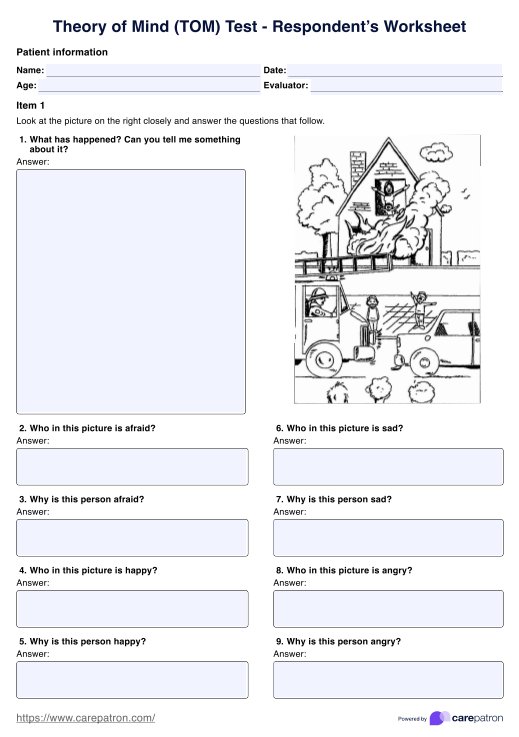The five stages of theory of mind are development of diverse desires, diverse beliefs, knowledge access, false beliefs, and hidden emotions.

Theory of Mind Test
Explore the Theory of Mind Test, its uses in clinical psychology, and how to assess social cognition—read this guide for free tools and expert tips.
Theory of Mind Test Template
Commonly asked questions
One of the most famous assessments is the false belief test, a classic task where a child must predict someone’s action based on that person’s mistaken belief, even if the child knows the truth.
The TOM Test, developed by Muris et al. in 1999, is a structured, multi-item measure assessing children’s ability to interpret emotions, beliefs, and intentions using pictures, stories, and role-play to track their theory of mind development.
EHR and practice management software
Get started for free
*No credit card required
Free
$0/usd
Unlimited clients
Telehealth
1GB of storage
Client portal text
Automated billing and online payments











